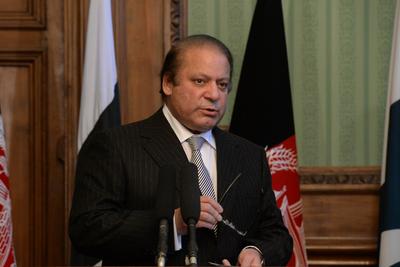Since independence in 1947, Pakistan has been ruled by the military on three occasions and for a period totalling over half of the country’s existence. General Ayub Khan seized power in a bloodless coup in 1958, changing the course of democracy in Pakistan forever.
Elections held on 11 May 2013 heralded a new era for democracy. For the first time in history one democratically elected government was replaced by another democratically elected government after President Asif Ali Zardari’s Pakistan People’s Party (PPP) completed its full term in office.
In the lead up to the election, many analysts did not hold high hopes that the elections would be held on time or stand up to international scrutiny, given previous elections have been tainted by fraud and electoral intimidation. While far from perfect, this year’s election was a big step forward on a path towards the strengthening of democracy.
A record number of candidates — over 4000 — registered to contest seats in the National Assembly (federal lower house of Parliament). A number of new political parties were also registered, with 216 parties contesting the elections. Each party is allocated an election ‘symbol’ used to identify parties both in campaigning and at the ballot box, given the high rates of illiteracy. Dawn News reported that the Electoral Commission of Pakistan ran out of election symbols given the number of new parties.
A strong positive outcome from the election was increased female political participation. Figures from the Electoral Commission showed a 129.8 per cent increase in the number of female political candidates contesting general seats from the 2008 elections.
Voter turnout was 55 per cent, which was the highest since the 1980s. Even the Taliban tried to get out the vote. In South Waziristan, a tribal committee proclaimed that anyone found to disrupt polling would ‘be fined one million rupees cash and his house would be set on fire’. However, this was not enough to persuade voters to get to the polls, with the lowest voter turnout registered (11.57 per cent of registered voters) in South Waziristan.
Violence marred the lead up to the election, with several candidates killed or kidnapped. Days before the election, high-profile candidate Ali Haider Gilani, son of ousted Prime Minister Yousaf Raza Gilani, was kidnapped on the campaign trail in Multan. He remains missing, with fears he is being held in Afghanistan. On election day itself, several polling stations were attacked across the country including multiple blasts in Karachi, Pakistan’s financial capital.
Nawaz Sharif, leader of the Pakistan Muslim League-Nawaz (PML-N) emerged victorious, with Nawaz taking the helm for the third time as prime minister. PML-N had an ambitious election mandate, including ending the energy crisis, stopping the US drones and improving the economy.
As 2013 draws to a close, little progress has been made on digging Pakistan out of its economic crisis. In November, the country’s foreign exchange reserves hit a 12-year low, falling to US$3.4 billion, which will cover less than one month of imports. The energy crisis has abated somewhat, with the government paying down some of the ‘circular debt’ plaguing the industry, which allowed additional power to be added to the grid. This relieved some of the crippling energy shortages facing the country. This year ‘load-shedding’ has affected every part of the country, with even the capital, Islamabad, having power only available on alternate hours at times throughout the year. Rural areas were worst hit, with some areas of the Punjab, Pakistan’s most populous state, without power for up to 20 hours per day.
Despite Pakistan’s intervention in the UN General Assembly this year, drone strikes have not diminished, with the United States still routinely using drones in Pakistan’s tribal areas to kill suspected terrorists. Hakimullah Mehsud, chief of the Pakistan Taliban or Tehrik-i-Taliban Pakistan (TTP) was killed in a drone strike on 1 November in North Waziristan. The killing caused public outcry in Pakistan, with calls for the government to completely review the relationship with the United States. There are fears that the killing will negatively impact upon Pakistan’s ability to engage in Afghan peace talks.
While 2013 showed signs of improvement, by no means is Pakistan out of the woods yet. 2014 is likely to test Pakistan’s mettle as the US military drawdown in Afghanistan is completed. The economy is likely (again) to take a backseat to security priorities for the government. One issue to watch will be the large potential influx of refugees from across the border. Currently, Pakistan hosts the largest number of refugees in the world, with more than 1.6 million Afghan refugees already living in Pakistan. The inflow of refugees will need to be carefully managed to prevent social upheaval and even more insecurity.
Alicia Mollaun is a PhD Candidate at the Crawford School of Public Policy, the Australian National University, and was based in Islamabad from 2010–13.
This article is a part of an EAF special feature series on 2013 in review and the year ahead.


Thanks, Alicia — I always enjoy reading your pieces. I’ve got a personal interest in Pakistan, and it’s nice to read such lucid analysis.